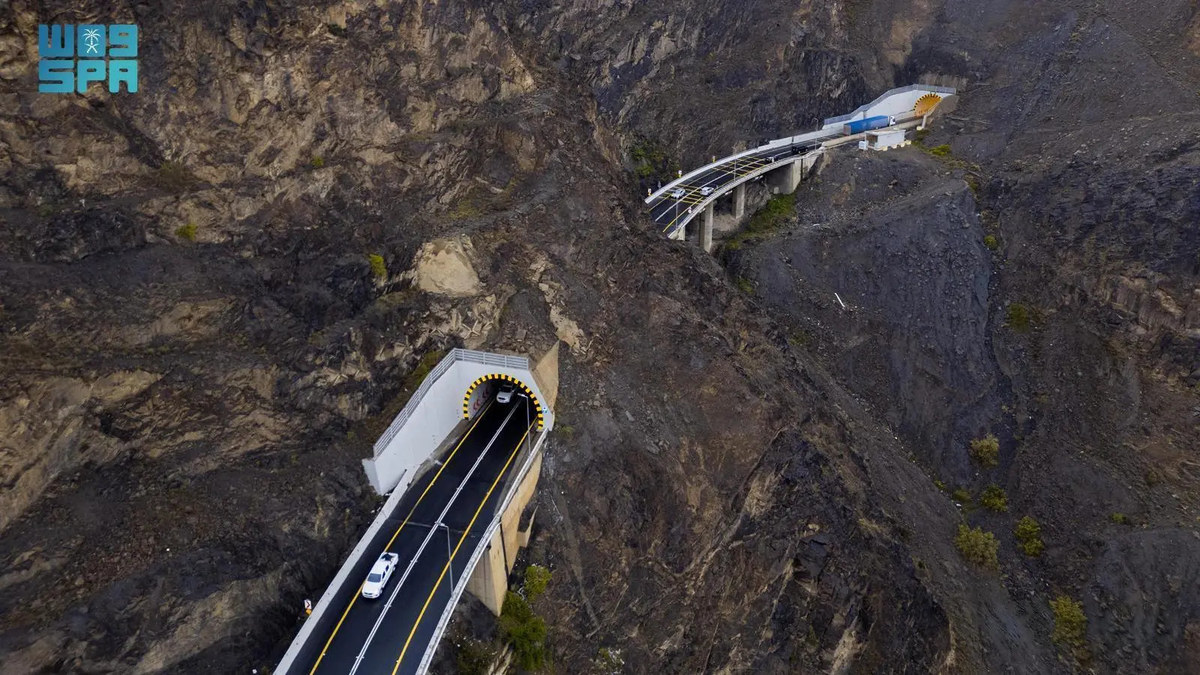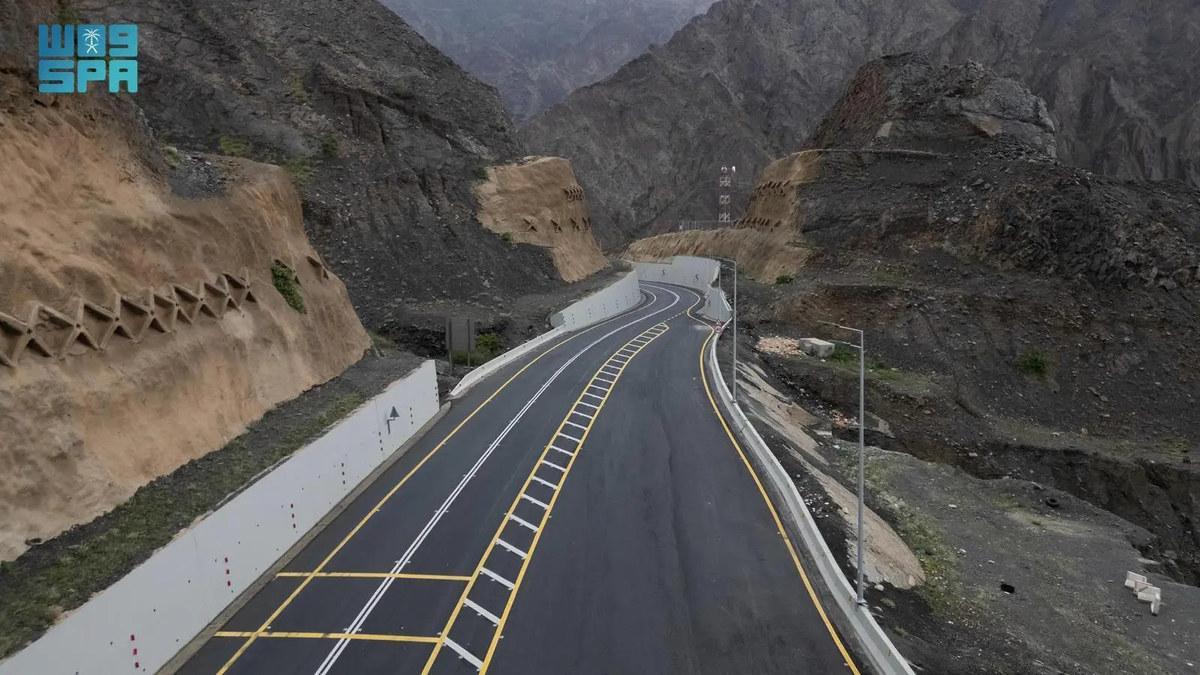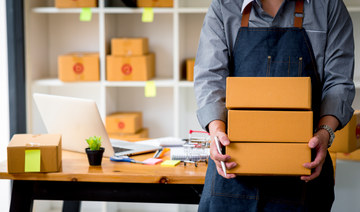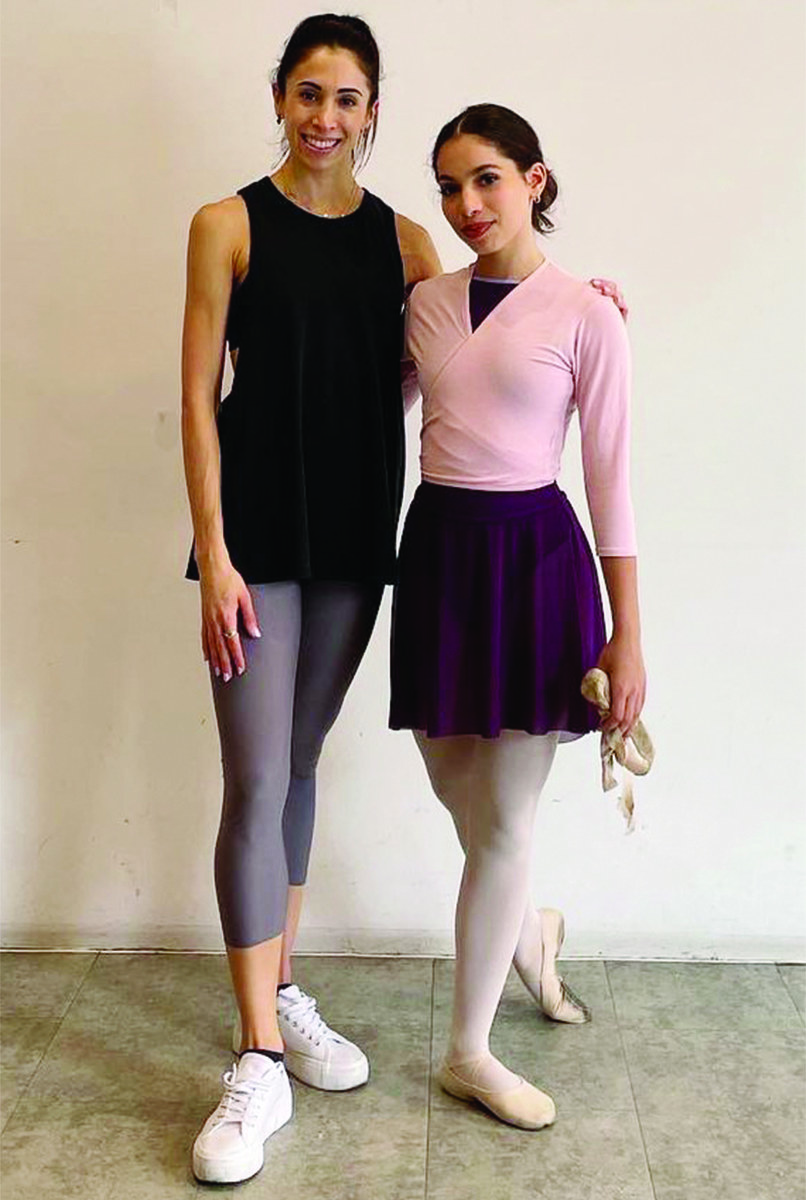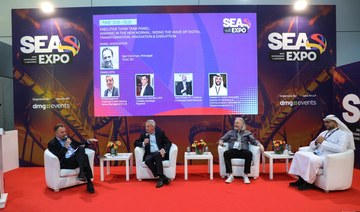RIYADH: Sculptors from across the globe will soon be transforming the streets of Riyadh into a borderless art gallery, using locally sourced stone from Tuwaiq, an area just outside of the capital, for the fourth edition of Tuwaiq Sculpture.
This year’s theme is “Energy of Harmony” and the artworks will be on display in Durrat Al-Riyadh from Feb. 5-10.
Sarah Alruwayti, Tuwaiq Sculpture manager, told Arab News: “Sculpting has been in Saudi throughout history, it’s a traditional artform. What’s amazing about Tuwaiq Sculpture is that it gives you the chance to witness these stones being turned into works of art.

From 10 am - 5:30 pm until Feb 2, visitors can access guided tours on-site to view the artists at work, live-sculpting raw blocks of granite and sandstone. (AN photo by Abdulrahman Alshalhoub)
“I used to see sculptures in museums and galleries as a kid, and I never believed that someone could actually carve these amazing, gigantic art pieces using their hands. I think it’s a great way to encourage the younger generation and to enhance (creativity) and the culture of sculpting as well.”
Curated by London-based Marek Wolynski creative producer, the event will feature bespoke, original designs by the artists and their assisting teams, created specifically for Tuwaiq Sculpture.
“Tuwaiq Sculpture intends to build bridges between tradition and modernity, and it’s a unique platform for people to meet, collaborate, exchange knowledge, and most importantly, create public artworks that will then inform the cityscape of Riyadh for generations to come,” Wolynski told Arab News.

Saudi artist Wafa Alqunibit uses Arabic calligraphy to present the 99 names of God proclaimed in the Islamic religion. In her artwork titled “Harmony,” the word “al-Samī,” meaning the one who listens, stands in curved letters, demanding respect in its mountainous granite form. (AN photo by Abdulrahman Alshalhoub)
From 10 a.m until 5:30 p.m. until Feb. 2, visitors can take guided tours to see the artists at work, sculpting raw blocks of granite and sandstone.
The finished large-scale artworks will eventually be distributed across the city, and are part of a venture to beautify Riyadh and enhance creative expression and dialogue under the Riyadh Art program, one of the largest public-art initiatives in the world
“The theme ‘Energy of Harmony’ really inspires artists to create iconic sculptures capturing those manifestations of introducing and witnessing transformative change. It’s all about mutual understanding. It’s all about the balance we all strive for in our lives,” Wolynski said.
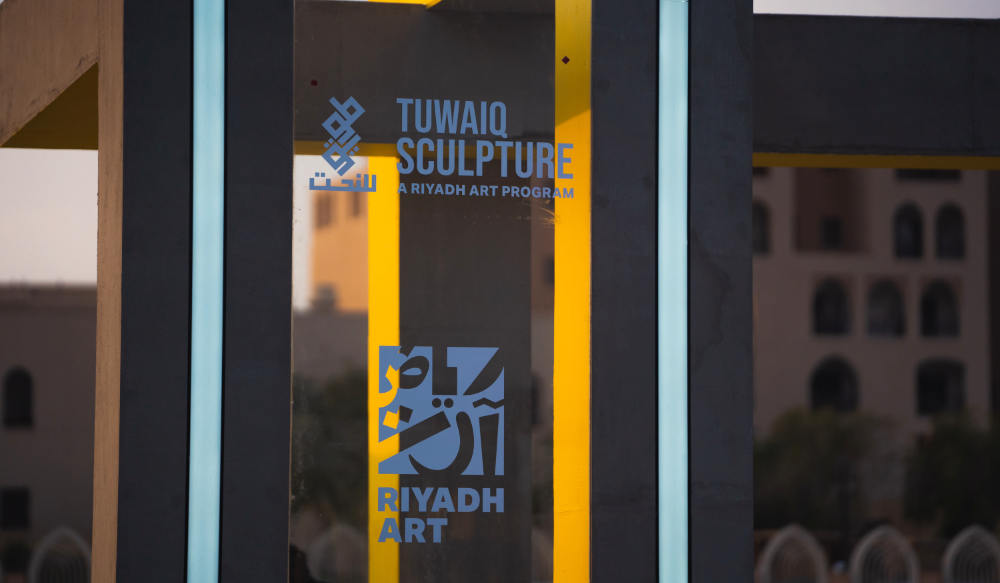
In its fourth edition, Tuwaiq Sculpture symposium has hosted visual artists from all corners of the globe under the theme ‘Energy of Harmony,’ soon to present its outputs in an on-site exhibition in Durrat Al Riyadh from Feb 5-10. (AN photo by Abdulrahman Alshalhoub)
English artist Rob Good’s “Rain Stone” sculpture attempts to portray natural rainfall by juxtaposing the softness of clouds with the harshness of granite. He has used different hues of beige, purple and gray to symbolize a desert landscape. These are not clouds drifting on a sunny day, but rather ones foreshadowing a rainstorm.
Good has carved three wide stones overlapping each other to mimic the fluffy silhouettes of clouds. People will be able to interact with the sculpture, walking through its gaps, or simply sitting and contemplating the philosophy behind the work.
“This granite is beige, and it can go quite dark when it’s highly polished. But I will leave them quite roughly sanded so that they remain light until the rains come and make them wet. And then they will transform, so it’s kind of that extra kind of push for people to get out and enjoy them,” Good told Arab News.

Curated by London-based Marek Wolynski, the theme inspired bespoke and original designs handmade by the artists and their assisting team specifically for Tuwaiq Sculpture. (AN photo by Abdulrahman Alshalhoub)
“I love the idea that people can move through them and children can run around them and play. I suppose I’m into clouds at the moment (because) we attach a lot of symbolism to clouds.”
In her piece, “Harmony,” Saudi artist Wafa Alqunibit is using Arabic calligraphy to present the 99 names of God proclaimed in the Islamic religion. The word “Al-Samī,” meaning ‘the one who listens,’ stands in curved granite letters.
“My aim is to represent religion through art,” Alqunibit explained. “The challenge for this symposium is using granite, which is much tougher than alabaster or marble, but I used the point and empty spaces to create this name.”
“Lockdown Window,” by Italian artist Marino Di Prospero, challenges the idea of infinity through surrealism. Di Prospero’s block of brown granite will soon become a frame overlooking the surrounding environment. Twisting in on itself on such a large scale, the structure will make it impossible to pass through the “window,” just as many people were unable to leave their homes during COVID-19 lockdowns.
Aside from the public art on display, Tuwaiq Sculpture will also include workshops, panel discussions, school visits, and masterclasses ranging from beginner to intermediate levels.
Faris Al-Harmah will run a Traditional Door Art workshop, the Madain Center will stage an intermediate-level Wood Sculpting workshop, and elsewhere, visitors can learn about jewelry-making, sculpting using metal wire, gypsum-sculpting, and more.
Panel discussions will focus on the theme, “Preservation of Culture Through Art.” Guest speakers include Saudi architect Saleh Al-Hathloul, Diriyah Gate Development Authority’s Director of Arts and Culture Dalya Mousa, and Director of Performance Arts at the Royal Institute of Traditional Arts Dr. Samir Al Dhamer.










